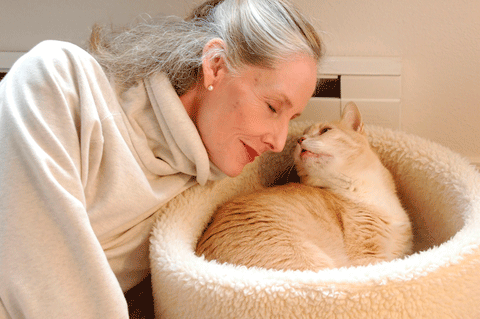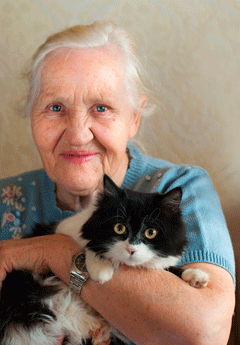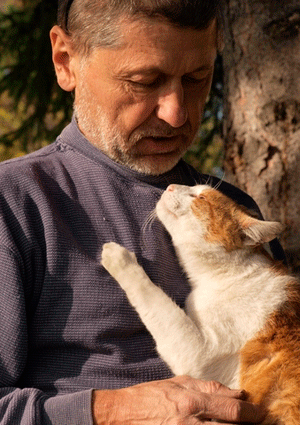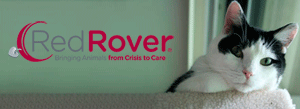
Changes In Older Cats
Gretchen Heuring | ElderThink
Aging is a natural process and advancing age in a kittie is well-described by the Cornell Feline Health Center at Cornell University College of Veterinary Medicine.
How An Older Cat Looks
She may look thinner. You might be able to feel (or see) her ribs under her coat. She might have some hair matting because it's hard for her to groom herself. Her claws can become thick and brittle and she can have trouble with her tooth decay. It's important to understand that these things happen gradually over months or even years. When a cat is in her teens, an six-months veterinary checkup is recommended. She will still want affection, but picking her up might be painful for her so be extra gentle.
How She Behaves
With elderly cats, a common problem is eliminating outside the litter box or spraying. Tests for infection or disease are important in an older cat so be sure to take the kitty to the veterinarian right away. A couple of other things to try are a different kind of litter box, or a different location for the litter box. Sometimes the cause can be stress because of a move or change in the family, and she just needs lots of reassurance from you. She is probably quite embarrassed by her behavior. After all, she is the Queen!
She can have problems with her vision and sense of smell. This might cause her to eat less, but be sure to have her teeth checked. No one with a toothache wants to eat much. You might try different foods to tempt her. Be sure she always has plenty of water.
An older cat can also get kitty-Alzheimer's and lose her way. She may have periods of wandering and meouing loudly. She is feeling lost and needs you to comfort her.
She Could Be Sick And Get Better
One common concern is the failure of an older cat to use the litter box properly or at all. There are treatable conditions that could be the cause. These include painful arthritis (makes it hard to get into the litter box), and diabetes or hyperthyroidism (needs to go before she can get to the litter box).
You Can Help Her Feel Good
She will love a daily brushing, especially if she is finding it hard to groom herself. Moderate play is a good thing. Play with a feather or a string or a bit of catnip is good for her because she will get some exercise. Help her with ramps where it makes sense and try cutting down the sides of her litter box or finding something with lower edges. Give her lots of affection and reassurance. She needs to know you love her.




 The RedRover Relief program provides funding to Good Samaritans, animal rescuers and pet owners to help them care for animals in life-threatening situations. Learn more about our RedRover Relief grants.
The RedRover Relief program provides funding to Good Samaritans, animal rescuers and pet owners to help them care for animals in life-threatening situations. Learn more about our RedRover Relief grants.